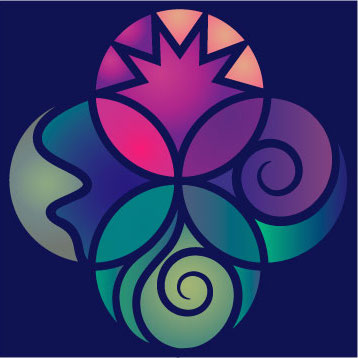Things We Lost in the Move
/The removalists came in a truck three times as big as our house. Our possessions were piled high in a plywood partitioned part of the trailer. Many of our things were in storage for five years, others brought back memories of our last house, left in haste over 2 years ago after a series of robberies.
Here is a list of some of the things we expected to see that weren’t there:
A queen-sized mattress and the wooden slats made to hold it up. The cast iron bed frame is propped uselessly against the wall.
An electric organ I can’t play yet. It belonged to my son. He made good music on it. Very heavy — I couldn’t bear to put it on the street to be ruined. So now I will play it — when it is found and put on a train, then a truck.
Solid wood sideboard. Handles were screwed on by a caring man. The bottom drawer was used to store my child’s artwork and the felt-lined cutlery drawer smells like oil pastels.
Lids of saucepans and the bottom of the wok we have the lid for. An egg slicer. Pastry brushes. The kit we paid an extra $70 for so that we could clean our lounge — which has grubby hand and boot marks on it.
Tools — my inexpensive tool kit from the Chinese imports shop with a hammer, wrenches, a hand drill with different bits and allen keys; CJ’s neat little electric drill from Europe — small enough to fit in your hand so that you can drill into and out of corners. My good hammer. The quality spanner my father gave me. Her more expensive spanner set that she bought especially because she found mine too tinny.
I thought my long garden secaturs had been lost until Claudia recalled that they’d already been stolen from the last house.
The vacuum cleaner — a yellow and grey Dyson that was my first luxury purchase as a doctor.
Talking about it at work, a colleague said, “I was robbed twice. The insurance company wanted original invoices to show I’d purchased the goods I claimed for. Of course, I didn’t have any.”
That’s what corrupt police used to do in the inner-city Aboriginal community my son went to school in. Cops broke down doors in the night, ostensibly looking for someone who’d broken parole, taking any goods or appliances that looked useful. Children were traumatised. People were told that they could get their goods back if they brought receipts to prove their ownership of their toaster, kettle, television or cricket bat. It was not the worst thing they did to that community, but it was nasty.
Back at our more peaceful house, the list of missing things had new additions every day. One of us would wake the other in the dead of night: “Have you seen my kitchen scissors?”
Unpacking, I’ve discovered letters written that I never sent. Precious notebooks almost unreadable in their tiny, self-conscious script, still evoke distant selves — long ago attitudes and drives abandoned.
My books are full of promise and satisfaction in their ownership. Finally I have them, with shelves to put them on. Cook books, poetry and novels, books of divination — including the hard-backed copy of the I Ching my mother gave me over thirty years ago when I was a bit of a lost soul. There are massive medical tomes with stories and shocking photos of the strange varieties of suffering human bodies are subject to. Books of chemistry and physiology with diagrams begging to be coloured in. We have dictionaries in Aboriginal languages, art books of many cultures, children’s books one or the other of us couldn’t resist, my coloured pencils, my oil pastels and tiny dots of watercolour paints with textured papers to run the colours over.
I have my ukulele from Tonga but that was never in storage. It travelled with us, gave me quiet moments of practice in the mornings in mining dongas we stayed in. Claudia, sleeping at the other end of the 10 metre long box-house, may suggest they were not so quiet moments. But they felt that way to me.
My father’s father was a collector. He always had books and magazines, mostly bought second-hand. He especially loved Dickens and Mark Twain. I remember him telling my father, as they surveyed his bookcase, that he’d read about half the books there. Aged nine, I was fascinated by the idea that you could have books, lots of them, that you haven’t read yet. I’d read every piece of text I could find in our house, including the text on cereal packets and insurance terms and conditions. I especially liked the survival stories and witty aphorisms in the Readers Digest.
I am feeling wealthy. There were about three or four nights that Claudia and I thought we’d lost a bag with jewellery in it. In it were cushion covers designed by a friend who passed from his grand life recently. The bag was found. We’d put it in a safer place — had been more trustworthy than we’d suspected.
The organ was found. The sideboard was found. Some things are finding their way back to us. We’re ready.
Claudia’s airplane tin with photos in it is still missing. We’ll welcome it back with open hearts.



